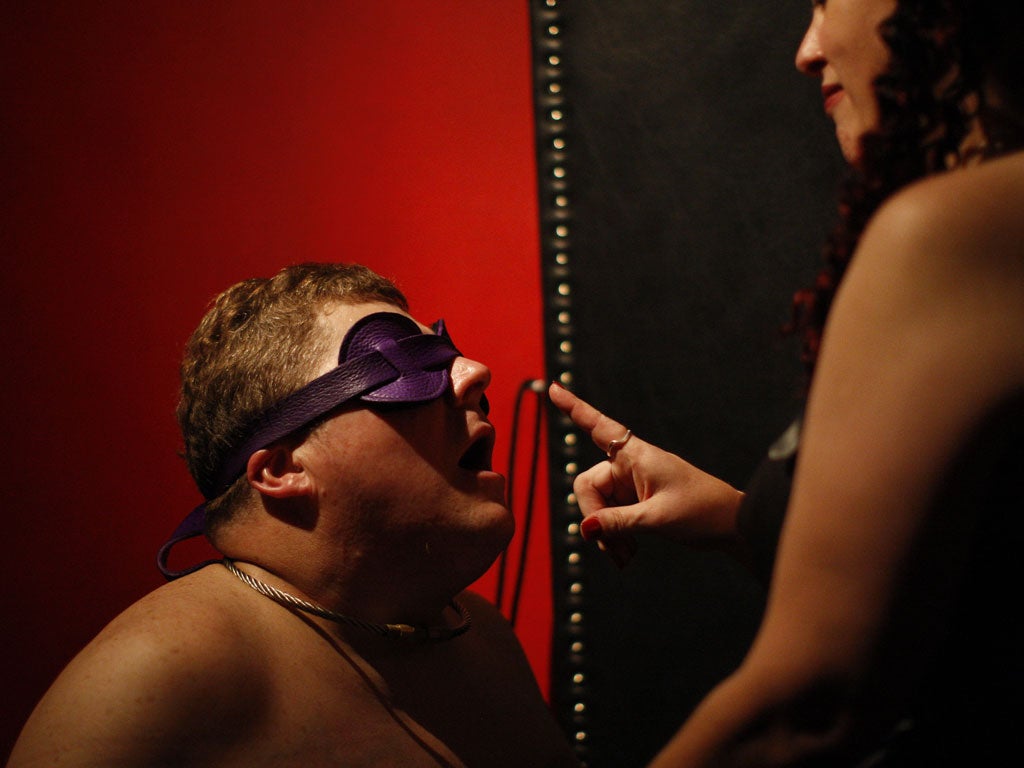Review: 'The Pleasure’s All Mine: A History of Perverse Sex', By Julie Peakman (Reaktion, £25)

"The Pleasure’s All Mine" is an odd title for an academic study of perversity: it sounds as though perverse sex is greedy, self-indulgent and possibly non-consensual. I picture Boy George in his flat in Shoreditch in April 2007, with a male escort chained to the wall. But there is a bigger question raised by the title – by whose definitions are these practices perversions?
“The Pleasure’s All Ours” would have been better, except possibly unfair on the dog assaulted by a woman in the chapter about bestiality or the families of the grave-robbing necrophiles. Julie Peakman wants all deviant behavior between consenting parties to be tolerated. This sounds eminently reasonable. And society is almost with her: if the male escort in Boy George’s flat had consented to being beaten and restrained as part of a sex game, it wouldn’t have attracted any attention.
Peakman thinks the law is still an ass when it comes to sex. She recounts the case of the cannibal who was prosecuted for manslaughter after eating a man who had entered into a contractual arrangement with him. Controversially, Peakman suggests that we should be able to consent to being devoured piece by piece for someones else’s gratification, assuming we are of sound mind, without worrying that the Hannibal Lecter-like gormand will be prosecuted. The issues raised by the cannibalism case are the same as with euthanasia, Peakman suggests. People should have the right to act on their self-destructive impulses without fear of censure. That seems quite radical. Unlike the escort, the young German cannibal Bernd Brandes did consent to being tortured; consuming his own penis before being stabbed to death.
This plea is complicated by the issue of consent. Sometimes consent is wrongly assumed, or in the case of the dead the lack of consent is the point. Like many readers I thought I knew quite a bit about this subject! The first few chapters were familiar accounts of sex in the Greco-Roman era. I knew Roman men were allowed several women – one for procreation, one for sex/alluring conversation, and another one for luck. I knew that buggering young boys was regarded as a form of “mentorship”. But later chapters were revelatory. I didn’t understand the physiognomy behind auto-asphyxiation but now certainly do. And who knew that there used to be a paeodophile’s liberation movement, that demanded rights for this oppressed minority. The Paedophile’s Information Exchange, founded in 1974, published a number of pamphlets which presented paedophilia as a social good. The authors asserted that the child is often a “willing” partner.
Today, such material would be relegated to the dark web, if you could find it at all. Peakman’s claim that there’s nothing new under the sun (just a shift of emphasis from one era to the next) is undermined by the current wave of sexual repression. Our hypersexualised society is also hyper repressive; we’ve never been more conflicted about sex and our confused sexual morays reflect that.
In the Jimmy Savile era, it is not possible to think of our children as sexual beings given that “child love” was the paedophile’s alibi. A related fear about the sexualisation of children – high heels for seven-year-olds, for example – has led to a denial about the thing one instinctively knows as a parent. This is a shame. I’m worried that our children will experience their own sexuality as a predatory stranger. A friend of mine wrote a play about childhood sexuality and was shocked when none of the reviews mentioned this issue: amazingly in our hypersexualised world some things are still taboo.
Charlotte Raven is editor of ‘Feminist Times’
Join our commenting forum
Join thought-provoking conversations, follow other Independent readers and see their replies
Comments
Bookmark popover
Removed from bookmarks